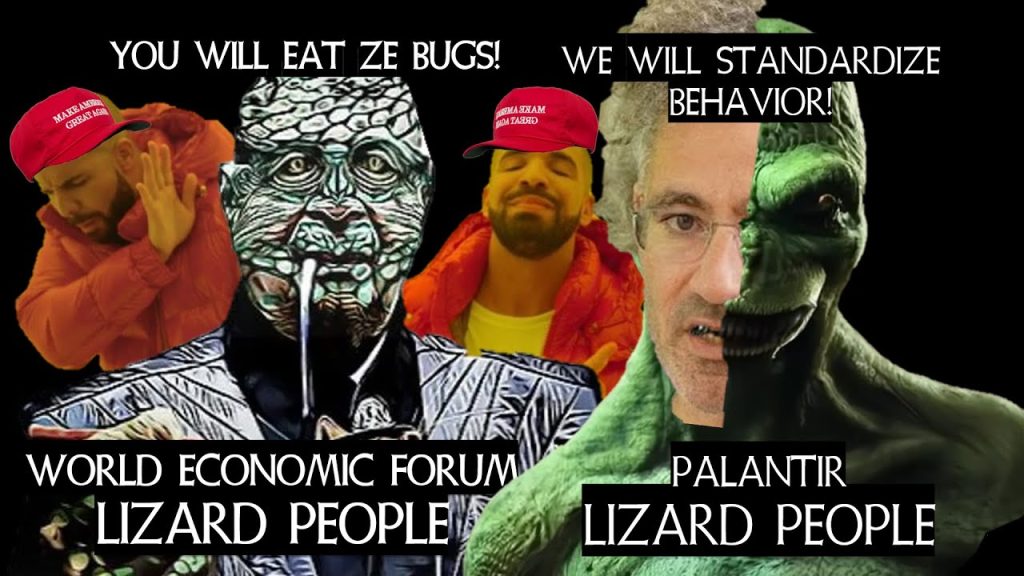In a recent political video titled “MAGA Doublethink: World Economic Forum are evil, PALANTIR are our friends,” the speaker draws on George Orwell’s concept of “doublethink” to discuss perceived threats posed by global organizations while simultaneously endorsing certain private corporations. The term “doublethink,” coined in Orwell’s dystopian narrative, refers to the ability to accept two contradictory beliefs at the same time, a notion that resonates powerfully within contemporary political discourse.
The video articulates a strong stance against the World Economic Forum (WEF) and the World Health Organization (WHO), organizations that the speaker argues serve the interests of an elite class—depicted as a cabal of “baby-eating pedo lizard globalists.” According to the narrative presented, these groups are accused of executing a “mad scientist plot” to exert control over global health initiatives, suggesting that such control could lead to infringements on personal liberties through measures such as vaccine mandates, lockdowns, and the suppression of small businesses in favor of large corporations.
Within this narrative framework, the speaker elevates Donald Trump as the sole protector against what they characterize as a nefarious agenda set forth by the international elite. The underlying message suggests that Trump’s leadership is pivotal in preserving American freedoms against the backdrop of rising authoritarianism tied to global health policy and economic restructuring allegedly orchestrated by the world’s richest individuals. The implication is that the WEF, convening annually in Davos, Switzerland, represents a threat to national sovereignty, where powerful players plan the future of global governance.
The strong anti-globalist sentiment expressed in the video is not isolated; it reflects a broader trend within segments of the U.S. political landscape. This line of reasoning asserts that global elites are colluding to consolidate wealth and power, furthering income inequality and marginalizing the working class. The argument extends to the technological realm, where companies like Palantir, known for their data analytics capabilities often utilized by government agencies, are portrayed as allies in this fight against elite-driven control. This has raised eyebrows, as Palantir’s connections to government surveillance could seem contradictory to the promoted ideals of personal freedom and autonomy.
Critics of this narrative caution against oversimplifying complex global issues into a binary of good versus evil, suggesting that such rhetoric can foster division and distrust while benefitting neither ordinary citizens nor democratic processes. The invocation of Orwellian concepts underscores the deep-rooted anxieties surrounding both the impacts of globalization and government authority in contemporary society.
Moreover, the video taps into fears surrounding health crises, ultimately arguing that past experiences with the COVID-19 pandemic serve as a warning of potential future lockdowns utilized by global authorities to reinforce power dynamics. The assertion that such control would lead to an enhanced transfer of wealth to a select few resonates with those who feel left behind in a rapidly changing economic landscape.
In conclusion, “MAGA Doublethink” encapsulates a potent mix of conspiracy theory and political rhetoric that reflects significant frustrations among the populace. By framing global organizations as antagonists and certain corporations as allies, the speaker skillfully navigates the fears and frustrations of a segment of the population grappling with the complexities of modern governance. The dialogue it raises about freedom, control, and the role of technology in the public space will undoubtedly echo in ongoing political discourse.



